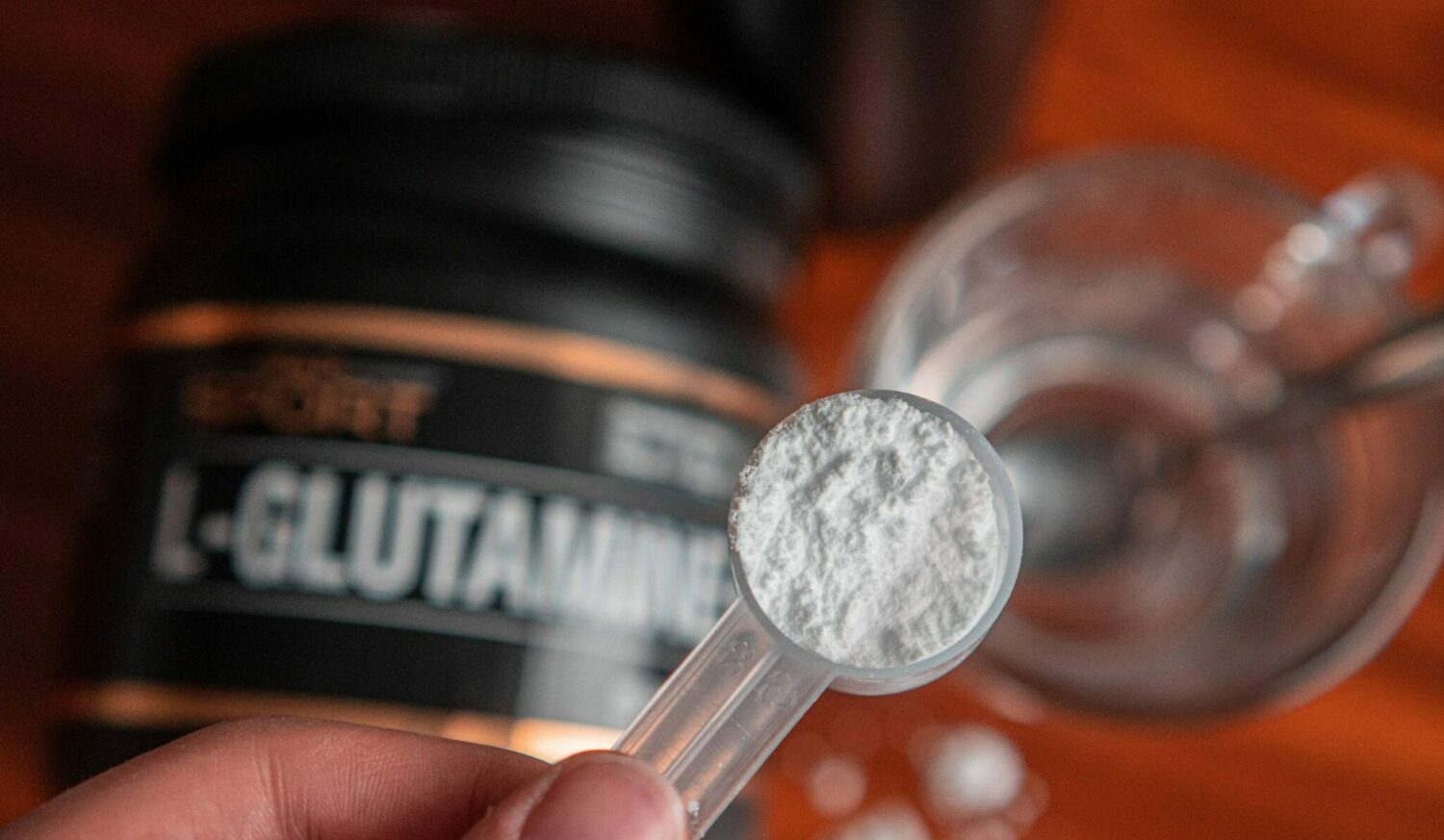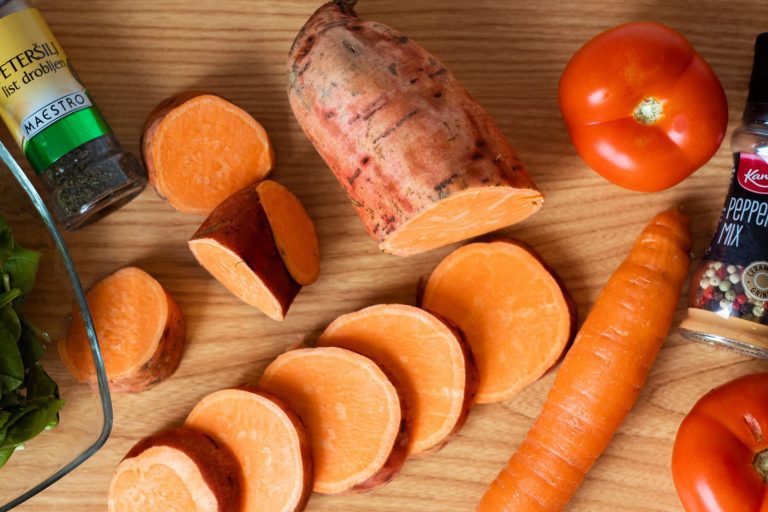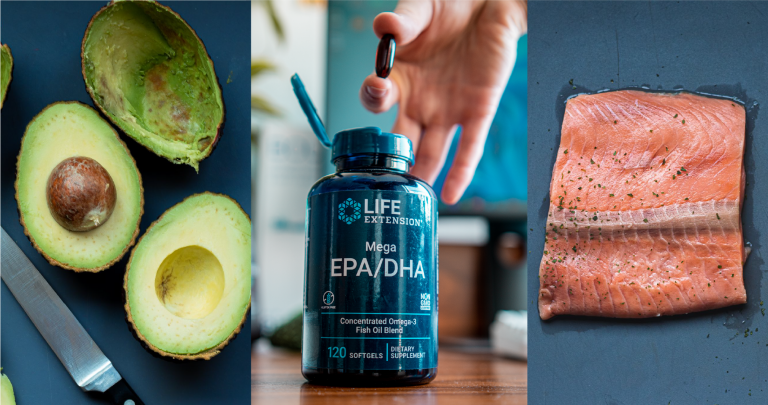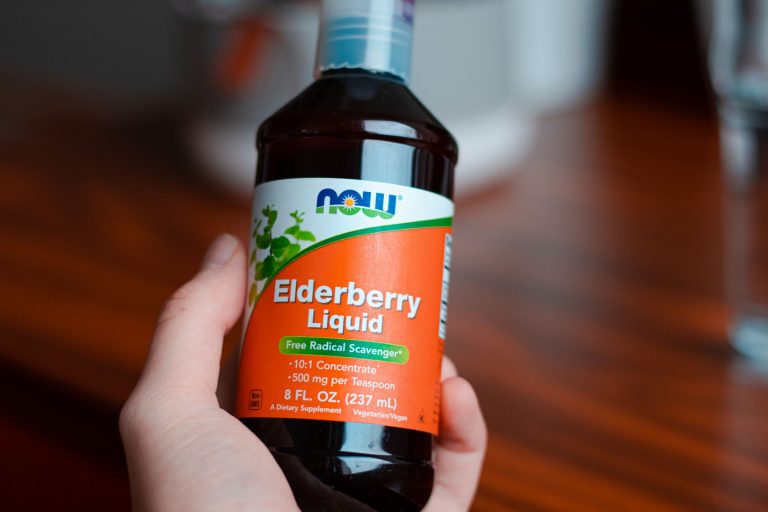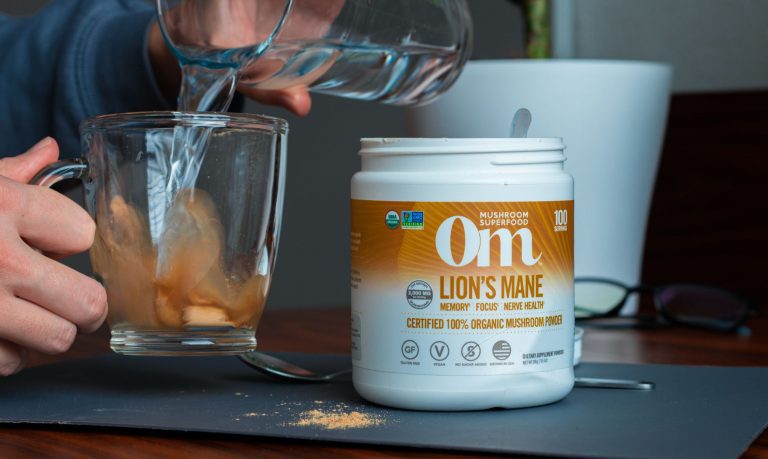Top 4 Glutamine Benefits: Muscle Recovery, Immunity & Gut Health
Glutamine is one of the most important amino acids in the body for the biosynthesis of protein. It plays a major role in muscle recovery, immune function, and gut health. But can glutamine improve muscle growth too? The research is quite interesting, so let’s see how important glutamine is and the potential glutamine benefits.
What is Glutamine?
Glutamine is a non-essential amino acid that acts as a building block of protein (no surprise, like other AA). But glutamine is the most abundant amino acid in our body too, making up around 60% of the total free amino acids in muscle tissue, isn’t that impressive?
There are two versions of Glutamine, L-Glutamine, and D-Glutamine. Glutamine supplements have the L version, which is bioavailable in humans. Contrary to popular beliefs, glutamine isn’t a muscle-growth amino acid but has many important immunity-supporting and gut-health-promoting effects.
Glutamine Synthesis
About 90% of all Glutamine is synthesized in the muscle tissue. Because the body can produce it on its own, it is classified as non-essential, which means we don’t need to obtain it through diet.
But glutamine has also been classified as occasionally essential, for ill people, or ones with burns or physiological stress. Why? Because our immune system needs glutamine to function, and when we are sick, its stores are depleted. Our synthesis isn’t sufficient enough, so in some cases, it is better to supplement with it.
The enzyme involved in glutamine synthesis is called glutamine synthetase, you could have guessed it. Not just muscles, but organs like the brain and lungs also produce small amounts of glutamine. The anabolic pathway for glutamine synthesis uses glutamate and ammonia.
Fun Fact
Many people underestimate the pressure on the joints long cardio has. If you’re running a lot, you must work on your leg and core strength to support such shocks. Instead, you can pick swimming, rowing, or hiking to minimize joint pressure.
The Role of Glutamine In The Body
Glutamine is very versatile in the way it functions. It has various roles in cell growth, recovery, immunity, gut health, circulation, acid-base balance, etc. It regulates different metabolic pathways, affects gene expression, and acts as a precursor to neurotransmitters. (1)
Here are some of the main functions of Glutamine:
- Biosynthesis of proteins acts as a building block of protein
- Regulation of acid-base balance in the kidneys (2)
- Plays a role in cell growth, supports cell function and differentiation (1)
- Substrate for the creation of glucose through gluconeogenesis
- Precursor for neurotransmitters like glutamate and GABA (3)
- The oxidative fuel source for immune cells and intestinal cells (1)
- Assists in purines synthesis by donating nitrogen (building blocks of DNA)
- Role in the synthesis of glutathione, a powerful antioxidant
- Acts as ammonia transporter in the blood (4)
- Maintains the integrity of the intestinal lining, minimizes inflammation, and improves gut microbiome (bacteria) + it may also balance mood as it acts on neurotransmitters (5)
- Suppresses pro-inflammatory signaling and plays a role in protection from oxidative stress (6)
summary
Glutamine is an important amino acid that has various functions in the body. It is involved in cell growth and proliferation, protein synthesis, supporting immune function, acid-base balance, and neurotransmitter synthesis.
Glutamine and Glutamate
Glutamate is an important excitatory neurotransmitter. It helps us send an electrical impulse (a message) through neurons. On the other hand, GABA is an inhibitory neurotransmitter. The balance of the two will create an optimal environment for healthy functioning.
Too much GABA makes us tired, slow, and sleepy while too much Glutamate makes us hyperactive.
Guess who jumps in to help to balance? Yep, that’s right, Glutamine. Glucose is used for brain energy and helps with neurotransmitter creation. Glutamine is involved in the glutamate/GABA-glutamine pathway, which has to do with neurotransmitter synthesis, and balance. (7)
Glutamine and Glutathione
Glutamine turns out to be important in the creation of one of the most powerful antioxidants in our bodies, Glutathione. As we exercise, we tear the muscle down, which increases oxidative damage. This happens with any hits that we take, especially as we age. To defend against oxidative stress we need antioxidants. Through glutamine supplementation, the aim is to increase the synthesis of Glutathione.
Glutathione is synthesized from cysteine, glutamate, and glycine. Glutamine is a glutamate substrate, which can help with glutathione creation. (8)
Glutathione is an antioxidant, that specializes in combating oxidative stress. This shows Glutamine’s potential use for reducing inflammation and improving recovery.
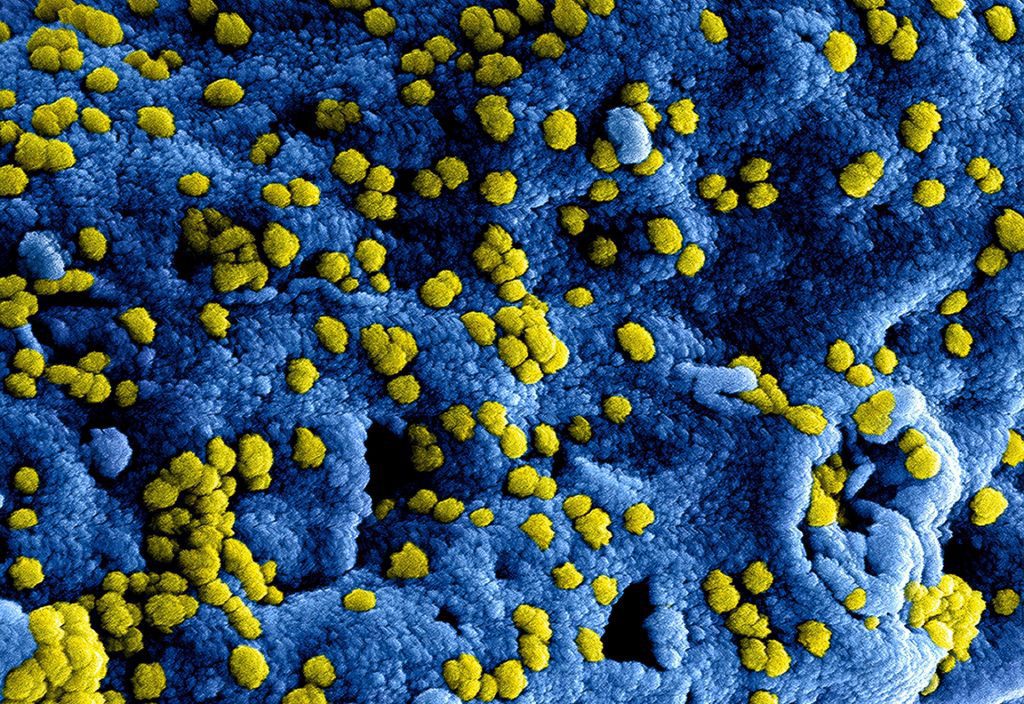
Glutamine on Gut Health
The gut plays a major role in the modulation and support of immune function, digestion of food, metabolizing nutrients and drugs, protection against foreign pathogens, etc. It also has a major impact on our mood and brain health, as the bacteria in our gut can directly impact our mood.
Fun Fact
The Gut is also a host of more than 100 trillion bacteria cells, the most in the human body. By feeding the good bacteria in your gut, you can improve the ratio of good to bad bacteria. This means less inflammation, better nutrient absorption, immune function support, and much more.
Our gut microbiome has a tremendous impact on the potential to develop certain metabolic or chronic diseases. Good gut bacteria helps turn foods into short-chain fatty acids, which are anti-inflammatory. We do need dietary fiber for this one though. (9)
It seems that diet and environment can highly affect the gut, this is why we’re told to eat more probiotics, to feed the good bacteria. But what about glutamine?
Glutamine is a great source of fuel for both the immune cells and intestinal cells. These are quite related, as they both support each other.
- Glutamine can support gut mucosal wall integrity, modulate inflammation and improve neurotransmitter balance. (10)
- Poor gut health compromises gut permeability, which leads to the release of toxins in the blood. By maintaining the integrity of the gut lining, glutamine can strengthen the barrier between the intestines and the blood. This means potential improvement in absorption and secretion, and fewer bacteria and toxins in the blood. (11)
This is why Glutamine has been promoted as a supplement that may prevent leaky gut, chronic inflammation, IBS, Chron’s disease, etc.
summary
Glutamine is an important amino acid that can help maintain the integrity of intestinal walls, potentially preventing a flood of toxins in the blood and improving food digestion, drug metabolism, and nutrient absorption. It also supports immune function and may balance out neurotransmitters and help with mood.
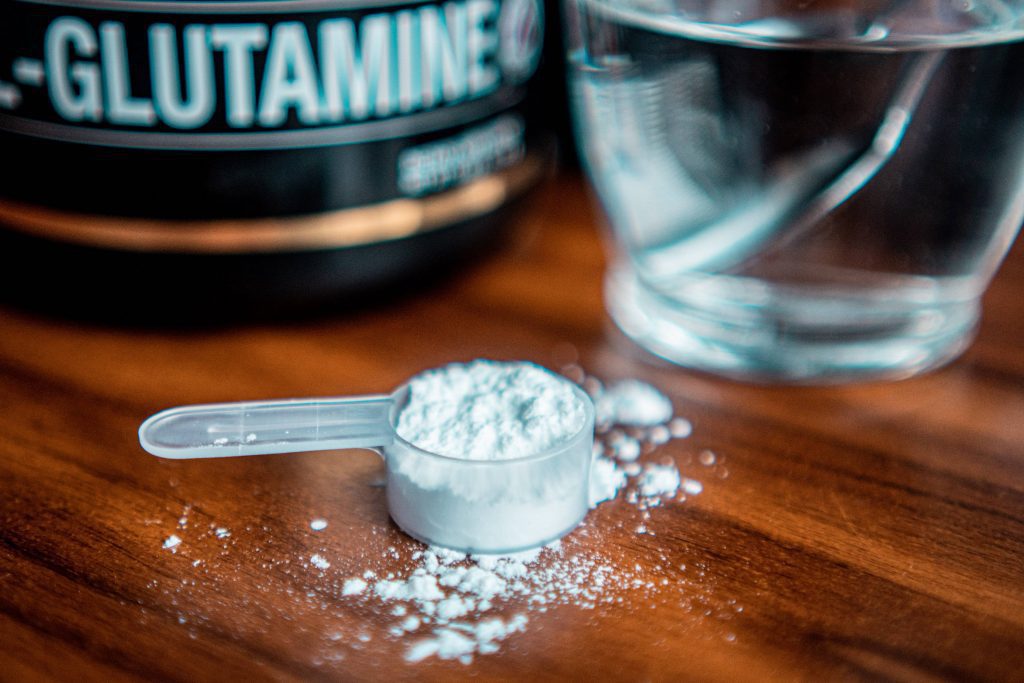
Glutamine on Immunity
Glutamine represents a source of fuel for immune cells like white blood cells or lymphocytes which protect you against foreign invaders, bacteria, and fungi and fight infections and diseases. It also helps with the creation of cytokines which control the development of other immune cells. (12)
The reason overtraining will eventually lead to sickness is because the training itself is physiological stress. If we apply it enough and have optimal recovery, we can become stronger. But too much can hurt you.
During prolonged physiological stress on the body (injury, burns, stress) glutamine stores in the body / muscles deplete because organ-demand is high. It leads to suppression of immunity – hence why glutamine can support immune function. (13)
- In hypercatabolic (meaning overtraining) situations the body starts breaking down muscle to get more glutamine, but its availability is compromised. (14)
- For people with compromised immunity (burns, infections, or injury) glutamine is considered to be »conditionally essential«. It directly impacts our ability to fight bacteria, since it serves as a metabolic fuel for immune cells. (15)
This is where supplementing glutamine comes in handy, to support immune function, as immune cells thrive on glutamine for proliferation and normal functioning.
Besides its immuno-stimulatory effects, Glutamine is important for the synthesis of Glutathione. Glutathione is one of the most potent antioxidants in our body.
summary
Immune cells use glutamine as a source of fuel, which helps to support their function and proliferation. During a time of stress, our body uses glutamine at a faster rate, depleting muscle stores. This is when extra Glutamine supplementation can aid in supporting immune function, as well as reduce oxidative damage due to Glutathione synthesis.

Glutamine on Muscle Recovery
Finally, can Glutamine help you build muscle? The answer is both yes, and no. Let me explain. Glutamine is the most abundant amino acid in our body, 80% of which is situated in the muscle.
Like other amino acids, Glutamine is a building block of protein, so it makes up the structure of the muscle. Glutamine aids in the biosynthesis of protein, something you need to build muscle. It plays important role in energy production, cell proliferation, and the creation of glucose.
- Supplementing with Glutamine was shown to improve the recovery of muscle strength, and well as reduce soreness after eccentric exercise. (16)
- Glutamine supplementation leads to reduced fatigue, improved synthesis of glycogen (important for muscle), and reduced accumulation of ammonia (lower inflammation and acidity). (17)
Glutamine won’t directly increase muscle growth, but it can positively impact muscle-building because it can improve immune function, speed up recovery and give us more energy.
Glutamine’s effects on muscle growth are perfectly outlined on Examine.com. The most important two bullet points are that glutamine won’t affect fat-loss and lean mass that much. (18) However, when it comes to strength recovery and reducing muscle soreness, glutamine was effective. (19)
An important regulator of growth is mTOR, which controls anabolic and catabolic signaling. Is it known that activating mTOR is associated with muscle growth, as activated mTOR increases protein synthesis. (20)
It is no secret the mTOR responds to amino acid quantity, to activate protein synthesis, resulting in muscle growth. Some of the important amino acids include leucine, arginine, and methionine. Guess who else? Yep, Glutamine. (21)
summary
To conclude, Glutamine won’t directly affect muscle growth, and it’s probably ineffective for fat loss or lean muscle mass (body composition). However, Glutamine can support the immune system, may help replenish glycogen, will increase energy, and even activate mTOR. All of these can indirectly lead to better muscle hypertrophy. Glutamine improves the speed of recovery and aids in reducing fatigue and DOMS (muscle soreness).
When and Why Do I Need to Supplement with Glutamine?
Glutamine is a non-essential amino acid that our bodies synthesize. The problem is, that when physiological stressors are increased too high, our body will use up most of the glutamine available to support immune function.
- When these stressors increase higher than the rate of glutamine production in the body, our immunity is compromised because there’s no glutamine to support it. What can you do? Supplement with it.
- Glutamine stores are depleted or are wasted at a faster rate anytime we are injured, burned, sick, training, or during any similar physiological stressors.
- The best time to supplement with Glutamine is when we feel we’re getting sick, our immunity is compromised and we are feeling weak.
- In athletes, or regular people who train (cardio or weightlifting), glutamine supplementation will support immune function and potentially prevent getting sick, plus it will support faster muscle recovery. It’s a win-win situation.
Note
We don’t have to feel sick to supplement with L-glutamine. Anytime we’re training and feeling our recovery is lagging behind, our immunity may become weaker and one good way to support it is with glutamine supplementation and rest. If we give our bodies enough glutamine (not necessarily after training), its levels will be higher and we can use those right after training, for better recovery.
Foods Rich in Glutamine
There is an abundance of Glutamine in different foods, hence why supplementation isn’t always necessary. Not surprisingly, foods often promoted to bodybuilders, like eggs, rice and chicken are rich sources of L-glutamine.
It turns out the average diet contains around 3-6 grams of Glutamine.
To be clear, L-Glutamine is an amino acid, so the chance of getting enough glutamine from your diet, if you eat a high-protein diet is pretty high. Now let’s get on to the food.
| Seafood and Fish | with saltwater fish being superior to freshwater in terms of Glutamine. So, fish like crab, sardines, prawns, and lobster are good choices |
| Eggs | are one of the best nutrition powerhouses. You’d get around 0.6 grams of Glutamine per 1 egg, plus other amino acids and B vitamins too. |
| Beef or Chicken | there’s no dilemma here. Large chicken breast or beef steak will contain around 2-4 grams of L-glutamine |
| Rice and Tofu | for vegetarians, these two provide around 0.3 – 0.6 grams of Glutamine per only 100 grams |
| Red Kidney Beans | as with many other legumes, beans, and lentils they are high in glutamine, providing around 0.6 g per 100 grams. |
| Nuts | cashews, almonds, walnuts you choose. While it can get pretty caloric, per 100 grams of nuts you get around 4-5 grams of Glutamine. Don’t eat 100 grams. |
| Cabbage | aside from being rich in L-arginine which can increase Nitric Oxide and improve circulation, cabbage, especially red is a pretty good source of glutamine too for a veggie. 0.2 grams per 100 grams. |
Pro Tip
In order to increase your uptake of Glutamine through Diet, you should aim for higher protein foods like meat, eggs, and nuts, but also some lentils, red cabbage, red kidney beans, and seafood (fish) are rich in glutamine too.
Safety, Dose, and Side Effects
- Glutamine is broken down into glutamate and ammonia. A high quantity of many amino acids may lead to neurotoxicity. Research has shown that there weren’t significant adverse effects of glutamate. (22)
- Supplementing with glutamine may cause mild side effects like nausea, bloating, dizziness, stomach pain or discomfort, and heartburn. (23)
- Some other side effects unlikely to occur may include swelling in hands and feet, rash or itching, sweating, and joint or back pain.
- Glutamine is part of our diet, and the body makes it on its own. In terms of extra supplementation of glutamine, it may cause unwanted side effects or worsen a condition in people with Advanced Liver Disease, Reye’s Syndrome (liver and brain swelling), Bipolar Disorder (it may increase mania or hypomania risk), Seizures, Monosodium Glutamate sensitivity, or kidney disease. (24) (25)
- Also, it hasn’t been tested in larger amounts for its safety in children and women.
conclusion
L-glutamine is one of the most abundant amino acids in the body, up to 80% situated in the muscle. The body can synthesize Glutamine on its own, but when our immunity is compromised it is a »conditionally essential« amino acid. It plays a major role in gut health, maintains the integrity of intestinal cells, is a source of fuel for immune cells, maintains acid-base balance, and supports muscle recovery and neurotransmitter production (mood). Foods like eggs, chicken, nuts, seafood, cabbage, and beans are the richest sources of Glutamine.

